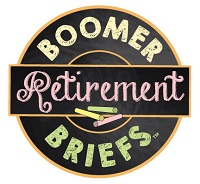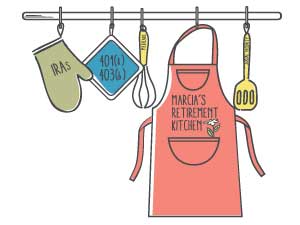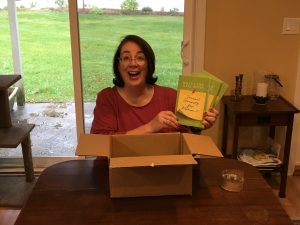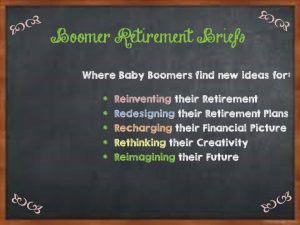Sitting in a conference, one of the speaker’s questions caused me to stop and think about money advice from my parents. The question was, “Do you remember any of the financial advice from your parents when you were a young child?” Hmmm… Did I receive some fatherly financial advice as a child? Anything about managing a household budget from my mom?
One piece of fatherly financial advice
While I had not thought of this for years, I did remember a money situation. I was a little girl, probably 7 or 8. I loved dolls back then and played with them every day. They were members of the family. To this day, I can remember taking such good care of “my babies.”
While in a store one day with my parents, I found the perfect toy. A set of plastic doll dishes and baby bottles. Do you remember those baby bottles with the fake “milk” in them. When you turned them upside down to “feed” the baby, the milk disappeared. I simply had to have this set for my dolls. Their names were Annie and Katy.
I ran over to my dad and explained that I had found this most wonderful set of doll dishes and would like to get it. Much to my 7-year-old dismay, Dad said “No” to my request. I remember being quite disappointed that I couldn’t get these new dishes.
The things that stick with you
Forty-some years later, I still remember this trip to the store. I have no idea the name of the store. I don’t know why I didn’t get what I wanted that day.
But thanks to that question at the conference, it triggered an important memory. I realized that this was indeed very sound and important fatherly financial advice. In fact, it was probably the best financial advice any of us can get. What my dad knew then, but my 7-year-old-self didn’t understand, was critically important. In order to get to where you want to go and to meet your serious financial goals, you have to learn to say “no.” Otherwise, spending on non-critical things can get in the way of success.
And, the earlier you learn that critical lesson, the fewer mistakes you are likely to make along your financial journey.
“No” is the most important financial word
If you want to retire early, for example, you may have to say no to the fancy vacations along the way. Or say no to the latest and greatest new car. After all, you can keep your perfectly fine, if not very new, minivan that you bought used. And, even worse, you might have to tell your kids no when they want something! It’s all part of the grander plan of making sure you achieve what you really need or want.
With that one simple, yet incredibly powerful word, “no” becomes the most important word in your financial lexicon. Sometimes you just can’t have. Sometimes “no” is just going to be the answer. And, that is not a bad thing. You have to stay focused and keep your eye on the prize. You’ll be better off financially and glad that you said no when you turned down something that you really didn’t need after all.
Recognizing today what I couldn’t have known then
It turns out that at that particular time, my parents had no money to spare. My dad was a full-time student and working part-time. My mom was supporting a family of five on her secretary’s salary. Those must have been incredibly challenging years for my parents. They had to every penny count. As kids, my brother, sister and I didn’t know that times were tough. We had all we needed. And had a lot of fun doing things that kids and families do. But, that one financial answer of “no” when I was 7 years old has stuck with me for a long time. I can now appreciate how it has largely formed the basis of my financial, saving, and investing belief system and practice.
In turn, I’ve passed that same sage advice on to my daughters (and occasionally to my husband!). I have turned “no” into sayings like “When your wallet is empty, there is no more buying.” And, “That’s an interesting request, why don’t you put it on your Christmas or birthday list?” I use another of my dad’s favorite sayings, “There’s no free lunch!” with the girls when they want to take advantage of a “free offer” that they see on TV.
Thanks to my dad and his fatherly financial advice, I learned to save my quarters and dollars very early for the things I wanted. I still run a budget and save extra change today. And, as importantly, I dutifully live by the “pay yourself first” rule.
Best financial practices can make a big difference
Which brings me to my retirement practices. I have always paid myself first in the form of payroll deduction when I worked for other companies. I delight in checking my rollover IRA from a job I had back in 1989. I had rolled $15,000 into an IRA decades ago. Today, it is worth over $100,000. And, when I left my job in the financial services industry after many years, I had amassed a sizeable 401(k). I have continued to invest using a growth strategy.
My husband and I continue to save first and foremost for our retirement in Traditional IRAs, his employer 401(k) and my SEP-IRA. Toss in a Roth IRA for each of us, and we’re looking pretty good. Or so we think at this point.
Passing along fatherly financial advice
It turns out that the financial advice you dispense to your young children does form the very foundation from which they will make life-long financial decisions. I got much more from that one trip to the store than I can ever thank my dad for. Sure I was disappointed. But in the grand scheme of things, we all have to learn to deal with a little disappointment.
What’s important is how we turn that disappointment into something positive and take action to get what we do want. We have to be resilient and rely on ourselves to make things happen. And, we have to value every dollar and make sure it is being directed where we want it to go. These lessons are incredibly valuable and completely necessary to survive and thrive.
So, to all the dads who have willingly, or inadvertently, dispensed sound financial advice to their kids, thank you. Your kids are better off because you helped them. To my own dad, I owe you big thanks for your financial wisdom over the years. I now appreciate your fatherly financial advice. Your granddaughters really appreciate that it’s all being passed on to them, too! Who knew one little word could lead to so much sound financial behavior?
Post a note about the best fatherly financial advice you got from your dad.




